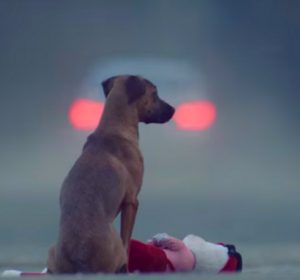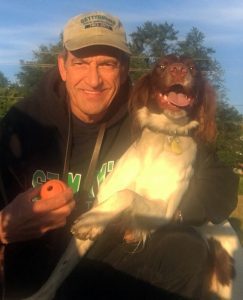
The first time she went missing, the rest of the family nearly went crazy with anxiety. We searched in neighbouring yards, down the block, around most of the village. We were beside ourselves with guilt and worry that we’d never get her back. We even put up signs:
“She’s three. She’s friendly. She’s been missing for several days,” our handmade poster proclaimed. “She answers to Topsy.”
She was my family’s first real household pet, a three-year-old collie, the spitting image of TV’s Lassie. And because we knew everybody around us felt the same way about their family pets, we figured she’d be returned to us really quickly. But that was the early 1960s.
I read a news story this week – from just down the road – that was the polar opposite to the predicament of our lost collie. The papers and TV news have reported this week that Parks Canada staffers are facing an odd problem. People are dumping domesticated animals in our national parks; they’re abandoning dogs, cats, rabbits, reptiles and other exotic animals that were formerly kept indoors at their homes.
At Rouge National Urban Park in Pickering, for example, park officials said in 2020 they retrieved just two former household pets; in 2022, they found 18. In a case last November, they came across the remains of a dog on a woodland trail; it had succumbed to starvation and exposure to the cold.
“Pets are not equipped to survive in the wild,” Lorraine Chung, one Rouge Park officer told the Toronto Star.
Three years ago, when COVID-19 suddenly forced us to stay home in isolation, a lot of us craved the companionship of pets. In the U.S., 23 million households got new pets during the pandemic. In the same period, Canadians introduced three million new pets into their lives.

One of those pandemic pets came into our home. Without a dog for several years and working entirely from home, I contacted a breeder in Millbrook and bought a springer spaniel. I named him Jazz. I knew from past experience that a mostly house-bound dog needs plenty of attention.
I have to feed him almost exactly the same time each day. I have to attend to his medical needs. I have let him out regularly. And I have to walk him; Jazz is so tuned to walks, he’s on my case – running for the leash, leaping at the door and poking my hands (even when they’re on this keyboard) to get off my butt for his walks.
The rhythm of responsibility is as vital for a pet as it is for a child. Strangely, however, in the COVID pandemic, when we learned how much we needed to depend on each other as humans, some our pets became expendable.
Because now it’s 2023. Anti-COVID vaccines have mostly done their work. For the moment, the deadly waves of the pandemic have subsided. With that pendulum shift, more people have returned to their offices, and some cannot/will not attend to those pandemic pets the way they did in isolation.
What’s worse, with the recent economic downturn, some pet owners have found the cost of pet food, veterinary bills, grooming and kennel services have all put a strain on that rhythm of responsibility.
Stu Johnson volunteers with Team Chelsea, helping to retrieve lost pets in Durham Region. He told Global TV last week that sometimes it’s unexpected vet bills, or because an owner can’t put a sick animal down, or a marriage breakup – that’s how pets become victims.
“In one situation, somebody thought it was OK to drop their dog in its crate along with all its belongings on a back road in Durham Region,” Johnson said.
Apparently desperate people have abrogated the commitment to their house pets and have hidden their desperation in the woods – leaving their problem behind for others to fix.
By the way, we eventually did find our pet collie, all those years ago. It was the Victoria Day weekend about 1963 or ’64, and Topsy had followed her nose to a neighbourhood park where children began playing with her.
About the time she thought about retracing her steps back home, it was dusk, and the village fire department ignited some holiday fireworks. Well, that did it. Topsy bolted into a backyard where a family recognized her panic panting, took her in and tried to track us down.
Next morning, word got up the street. We heard about a collie in distress. And Topsy came home safely.
We just couldn’t imagine life without our canine family member. And I think that has to be the prerequisite before anybody brings a pet home to keep.